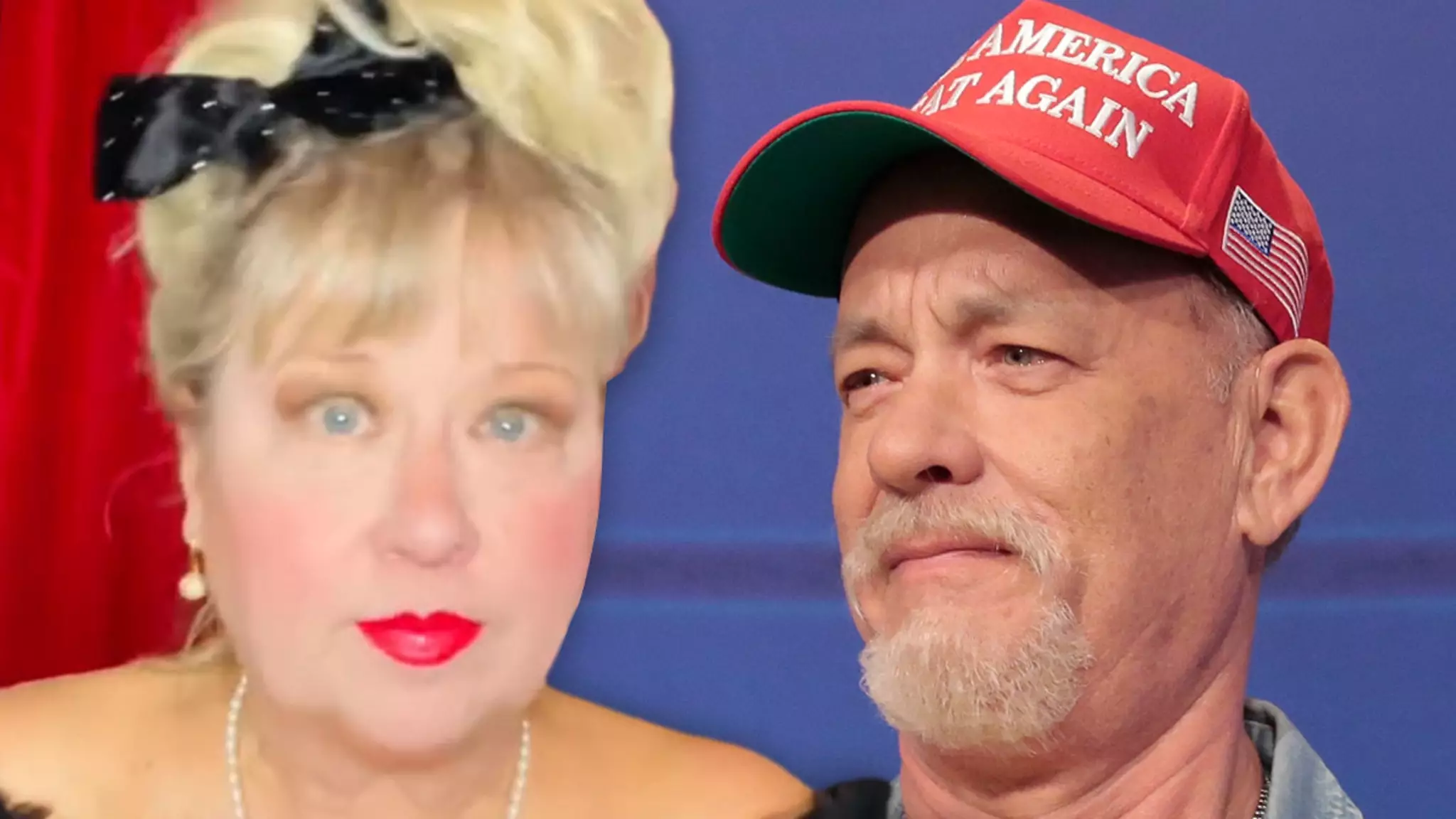In the vibrant world of late-night comedy, the intersection of humor and politics often breeds fierce reactions from audiences and performers alike. Recently, Tom Hanks made headlines after delivering a skit on Saturday Night Live (SNL) that sparked a significant backlash from certain viewer segments—particularly among staunch supporters of Donald Trump. As a beloved figure in Hollywood, Hanks’ decision to lampoon Trump supporters has stirred controversy, igniting not only public discourse but also criticism from former cast members of the very show that showcased his comedic talents.
Victoria Jackson’s Response
One notable voice in the conversation is Victoria Jackson, a former SNL cast member known for her conservative views. Expressing her outrage to TMZ, Jackson described Hanks’ interpretation of a Trump supporter in the skit as a damaging stereotype, and highlighted a particular commentary from political analyst Link Lauren that vehemently criticized the labeling of Trump supporters as racists. According to Jackson, this trope is “downright disgusting” and reveals a deeper rift in how political affiliations are perceived in contemporary society.
This incident raises important questions about the nature of comedy in a politically charged atmosphere. Comedy has long served as a tool for social critique, but does it also hold the responsibility to avoid alienating a significant portion of its audience? In Jackson’s view, the skit not only perpetuates a harmful stereotype but also lacks the nuance that good satire often possesses. Hanks, known for his warmth and relatability, appeared to misstep in a way that has disappointed many, including his long-time fans, by not recognizing the potential impact of his comedic choices.
As the media reacted to the spell of discontent, Jackson pointed to the broader implications of Hanks’ portrayal, noting that it comes at a time when the show’s ratings are reportedly declining. The connection made here speaks to a growing discontent among audiences who feel marginalized or mocked by popular media. It raises an essential inquiry into whether comedic platforms can maintain their cultural relevance without ostracizing any group, particularly in a polarized political climate.
The backlash against Hanks may serve as a cautionary tale for creatives navigating the waters of political commentary through satire. While comedy can and should explore complex topics with humor, it must also be aware of the diverse perspectives that exist within its audience. As the fallout continues, one wonders how Hanks and SNL will adapt in a climate rife with both criticism and fervent support. In an age defined by immediacy and social media responsiveness, the impact of this skit will likely resonate, shaping the discourse for future productions and public figures alike.

